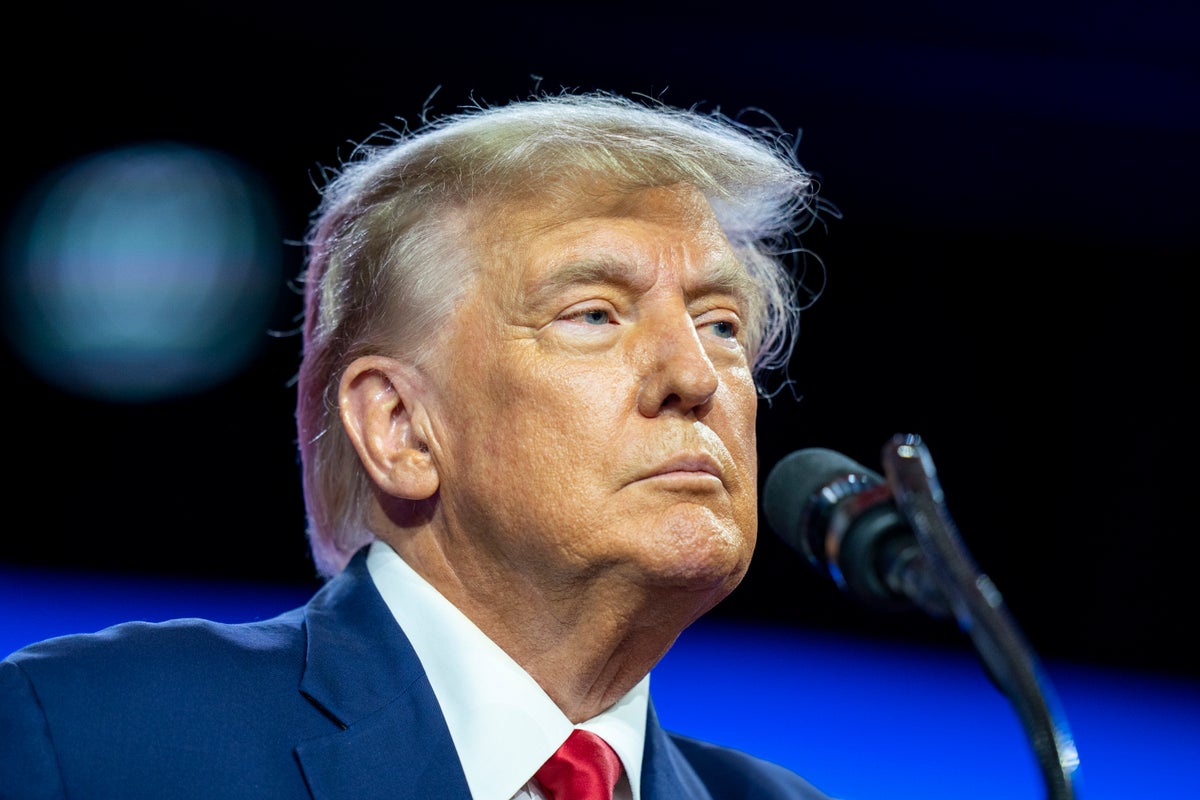
A looming criminal indictment now widely expected to be coming down on Donald Trump’s shoulders has left many wondering what to expect when, and if, he is arrested.
Authorities have erected barricades outside the Manhattan courthouse where Mr Trump’s arraignment would occur.
A grand jury could bring charges against him for alleged hush money payments made to porn star Stormy Daniels during his 2016 presidential campaign. Trump has denied having an affair with Daniels, whose legal name is Stephanie Clifford.
Several questions remain about the step-by-step process for criminally indicting a former president, including the logistics of actually carrying out the task of bringing Mr Trump to the courtroom. Some of the decisions are admittedly still up in the air: “We’ll be discussing how we bring Trump in,” one person involved in the planning told Politico this week, adding cryptically: “No decisions have been made yet.”
Many of those questions likely centre around how much of this process will be carried out in person, a time-consuming and complicated endeavour given Mr Trump’s ongoing Secret Service protection and status as an active candidate for the 2024 GOP nomination.
Will Donald Trump surrender, or fight extradition?
His lawyers have indicated that the former is the most likely outcome, should charges actually be handed down. There have been whisperings (and very public urgings from his supporters) in favour of the president doing the latter, but such an effort would likely be unsuccessful and merely add more public spectacle to the already-humiliating drama. In most cases of white collar crime, defence counsel works it out with the DA’s office and the two parties schedule a time for the defendant to come in.
Will he be handcuffed?
Almost certainly not. The crime(s) for which he could be indicted are not considered violent offences, and the former president is hardly considered an escape risk. District Attorney Alvin Bragg has also reportedly been discussing the optics of handling Mr Trump’s arraignment, so don’t expect any attention-grabbing moves like slapping Mr Trump in cuffs. By contrast, The New York Times reports that Mr Trump hopes that Mr Bragg will indeed take this step, as he hopes to inspire a frenzy of photos in the media of a former US president being “perp-walked”.
What about fingerprints and a mug shot?
Yes, and yes. Those are standard parts of the booking procedure and will not be skipped just because of Mr Trump’s celebrity status.
Karen Agnifilo, a former prosecutor in the Manhattan district attorney’s office, told the Wall Street Journal that Trump would then also be interviewed by detective investigators and arrested.
“And he would be issued a rap sheet reflecting this arrest, like every other person who is arrested and fingerprinted in this country,” said Ms. Agnifilo.
She added that Trump would likely be spared being held in a holding cell like most defendents awaiting arraignment.
Does he have to appear in person?
For the initial booking procedure, yes; that cannot be done remotely. What’s still under consideration is whether Mr Trump will have to be physically in attendance for his arraignment, which he has reportedly discussed as a favourable option, but it’s very possible that Mr Trump’s lawyers will push for the arraignment hearing to occur remotely.
Will he be forced to post bail?
Probably not. Should he be formally arraigned without conflict, a judge will likely release him on his own recognisance.
When will it happen?
While Mr Trump predicted that he would be arrested on Tuesday 21 March, the day came and went with no indictment. The grand jury’s proceedings were then called off on Wednesday 22 March and pushed back the following day, delaying any eventual indictment.







